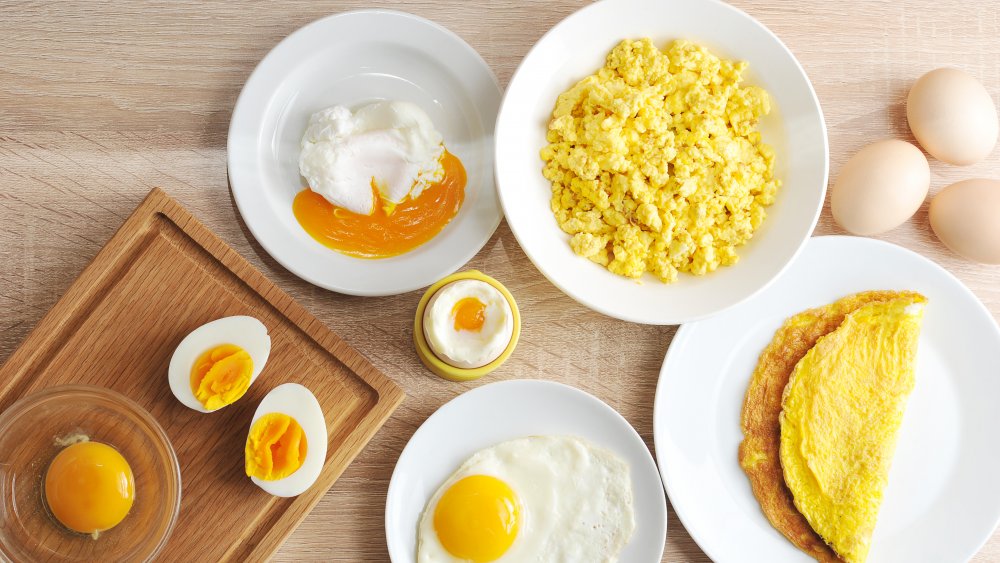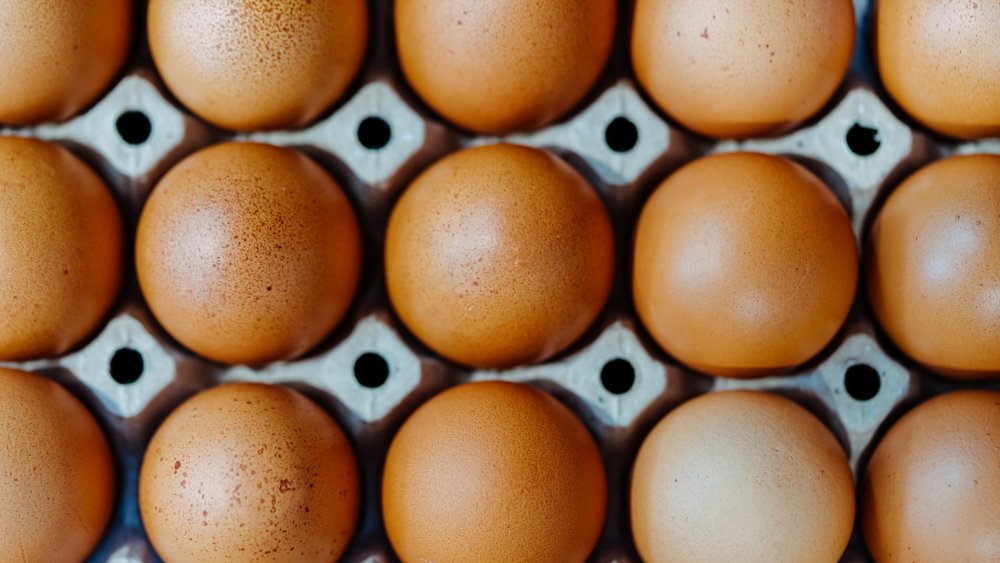The Real Reason You May Not Want To Eat Leftover Eggs
Eggs are a staple in most households. Whether you scramble them for breakfast, hard boil and slice them up for egg salad for lunch, or serve them sunny side up for dinner, eggs can be a quick meal any time of the day. However, you may want to think twice about making a little extra for leftovers the next day, or even the next meal. Why? On top of leftover eggs not tasting all that great when you reheat them, they rank among foods that, when left out for even seemingly-short periods of time, can possibly make you sick or cause serious illness (via Cooking Light).
According to the Food and Drug Administration, approximately 79,000 cases of food borne illnesses each year can be linked to eating eggs contaminated with Salmonella, which is a type of bacteria. So how do you know if your leftover eggs are okay to eat, or should be thrown away for safety purposes?
The danger of eating leftover eggs
Some foods are simply meant to be cooked and immediately eaten. Eggs are among of these foods. Indeed, even cooked eggs that are left out too long can be a health hazard. That's why the FDA has issued some simple guidelines to help mitigate the danger of consuming leftover eggs, and keep you safe.
Eggs, and dishes that contain eggs like quiches and casseroles, should be served shortly after they have been cooked. If you don't plan to serve them immediately, the FDA recommends refrigerating and reheating the dish to a temperature of 165 degrees Fahrenheit before you dig in. If you don't have a food thermometer to test the temperature of your egg dish, this could be your reason to purchase one.
Meanwhile, never leave cooked eggs or egg-based meals out for more than 2 hours. Additionally, if you are planning on packing up some deviled eggs or egg salad for a picnic, you should transport it in a cooler — but don't keep your cooler in the trunk of the car, or it could heat up quickly and spoil your egg dish.
Bottom line: when in doubt, throw it out. Your stomach will thank you.

